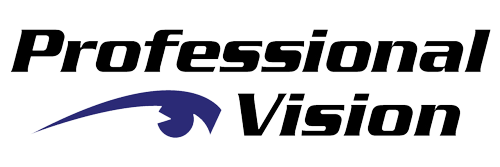How to Recognize Vision and Eye Health Issues in Children
Children rely heavily on their vision to learn, play, and explore the world around them. However, because kids often don't realize that their vision is compromised, recognizing potential eye health issues can be challenging. As a parent or caregiver, being aware of the signs of vision problems in children and understanding how eye care professionals can help can go a long way in ensuring your child’s long-term eye and overall health.
Seven Common Signs of Vision Problems in Children
One of the first steps in recognizing vision issues in children is knowing what to look for. Here are some common signs that may indicate your child is experiencing vision or eye health issues:
1. Squinting or Tilting the Head: If your child frequently squints, tilts their head, or closes one eye when focusing on something, this could be a sign of refractive errors like nearsightedness, farsightedness, or astigmatism.
2. Frequent Headaches or Eye Strain: Children who often complain of headaches, particularly after reading or doing homework, may be struggling with uncorrected vision issues. Eye strain can also manifest as redness, watering, or rubbing of the eyes.
3. Sitting Too Close to Screens or Holding Books Close: If your child consistently sits close to the television or holds books or devices close to their face, they may be compensating for poor vision.
4. Difficulty with Schoolwork: Vision problems can significantly impact a child’s academic performance. If your child is falling behind in school, struggling with reading, or showing a sudden disinterest in schoolwork, vision issues may be the cause.
5. Clumsiness or Poor Coordination: Vision plays a key role in coordination and balance. Children with vision problems may appear clumsy, frequently bump into objects, or struggle with sports that require hand-eye coordination.
6. Eye Misalignment or Crossed Eyes: Noticeable eye misalignment, such as crossed eyes (strabismus), can indicate serious underlying vision issues. Early detection and treatment are crucial for preventing long-term vision problems.
7. Light Sensitivity: If your child complains about bright lights or seems overly sensitive to sunlight, this could indicate an underlying eye condition.
How Our Eye Care Team Can Help
Recognizing the signs of vision and eye health issues is the first step, but professional evaluation and care are essential to address these concerns. Our eye care team provides comprehensive eye exams specifically tailored to the needs of children. During these exams, we use child-friendly techniques to assess visual acuity, eye alignment, and overall eye health.
Early Detection and Treatment: By identifying vision issues early, we can offer appropriate interventions, such as prescription glasses or contact lenses, to correct refractive errors and improve your child's vision. Early treatment of eye conditions like amblyopia (lazy eye) or strabismus is also critical in preventing long-term visual impairment.
Preventative Eye Care: Regular eye exams are essential for monitoring your child’s vision as they grow. Our team will keep track of any changes in your child's eyesight and provide timely treatment if needed, helping to prevent future complications.
Education and Support: We believe that educating parents and children about eye health is just as important as the exam itself. Our team takes the time to explain the results of your child’s eye exam, discuss any necessary treatments, and offer advice on how to maintain healthy vision at home.
Ensuring that your child’s vision is at its best is vital for their development and quality of life. By being aware of the signs of vision problems and seeking expert care, you can help your child see the world clearly and thrive in all aspects of life when you request an appointment at Professional Vision.


